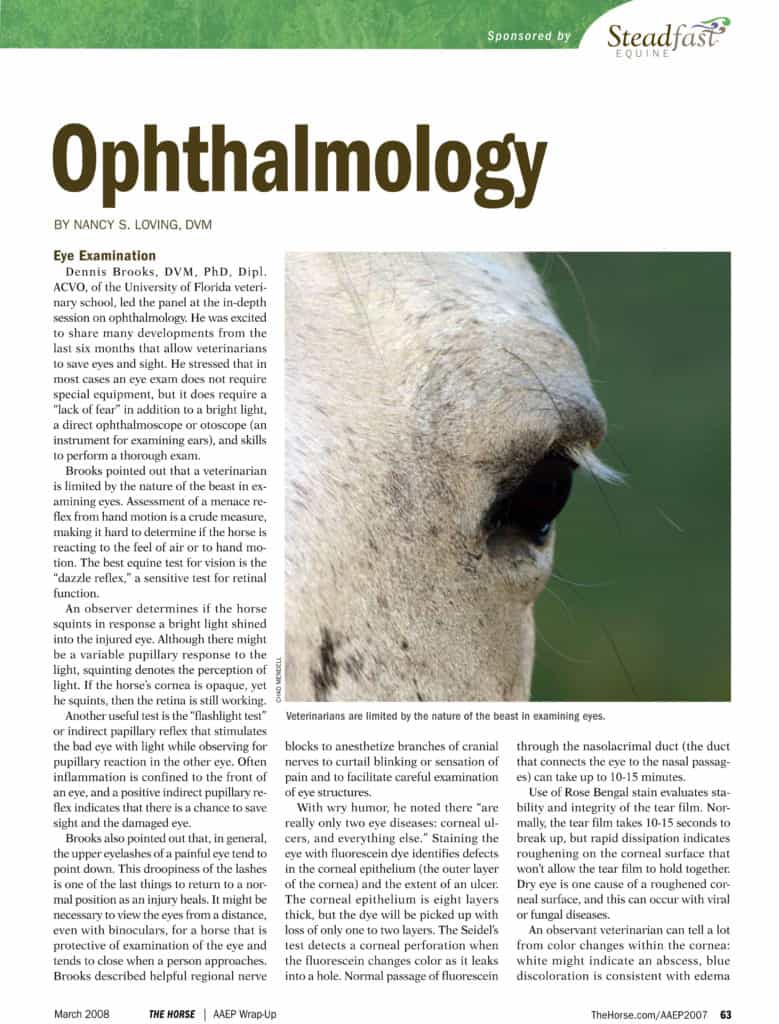Preventing and Handling Eye Injuries
Eye injuries and infections are not uncommon in horses, but minor problems left untreated can quickly become serious and result in blindness if unattended. Here are some recommendations for preventing problems and some guidelines to follow if
















